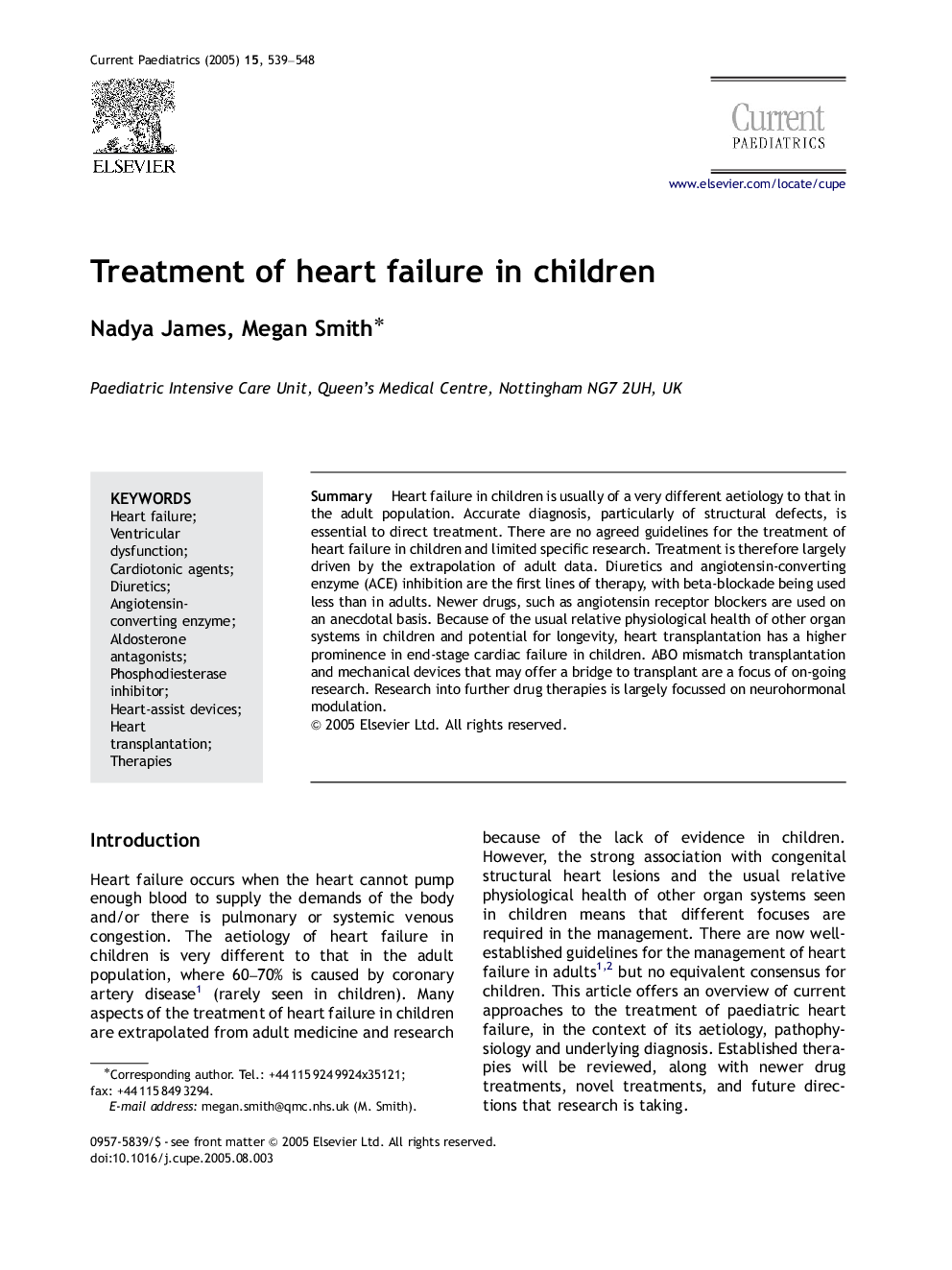| Article ID | Journal | Published Year | Pages | File Type |
|---|---|---|---|---|
| 9372212 | Current Paediatrics | 2005 | 10 Pages |
Abstract
Heart failure in children is usually of a very different aetiology to that in the adult population. Accurate diagnosis, particularly of structural defects, is essential to direct treatment. There are no agreed guidelines for the treatment of heart failure in children and limited specific research. Treatment is therefore largely driven by the extrapolation of adult data. Diuretics and angiotensin-converting enzyme (ACE) inhibition are the first lines of therapy, with beta-blockade being used less than in adults. Newer drugs, such as angiotensin receptor blockers are used on an anecdotal basis. Because of the usual relative physiological health of other organ systems in children and potential for longevity, heart transplantation has a higher prominence in end-stage cardiac failure in children. ABO mismatch transplantation and mechanical devices that may offer a bridge to transplant are a focus of on-going research. Research into further drug therapies is largely focussed on neurohormonal modulation.
Keywords
Related Topics
Health Sciences
Medicine and Dentistry
Perinatology, Pediatrics and Child Health
Authors
Nadya James, Megan Smith,
